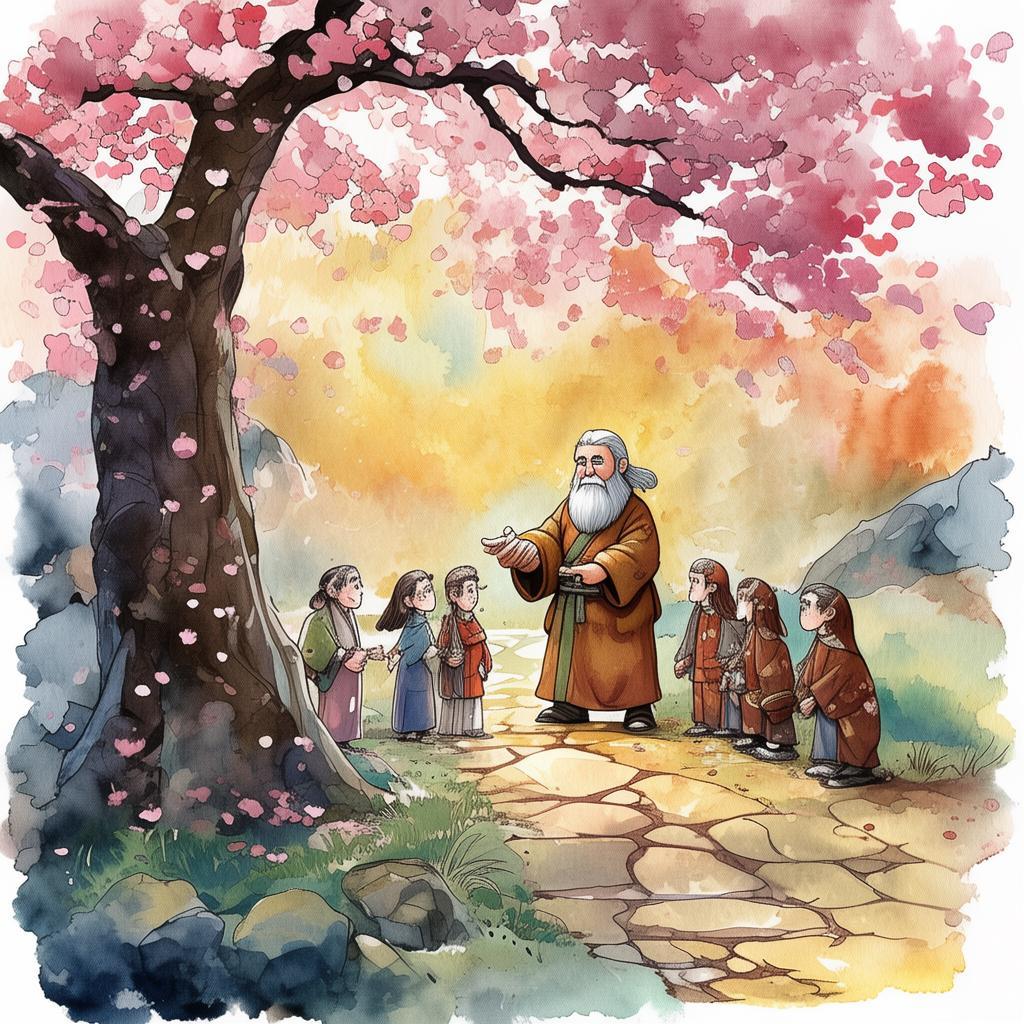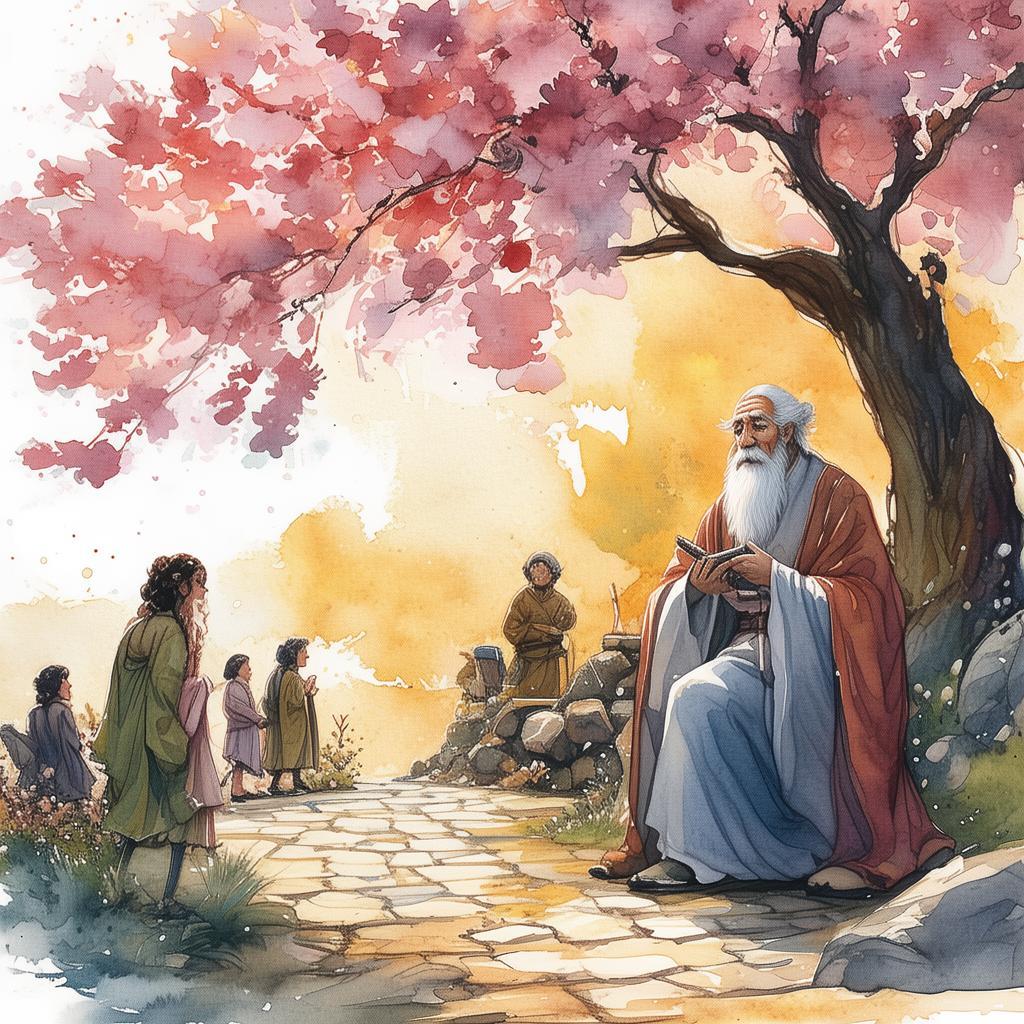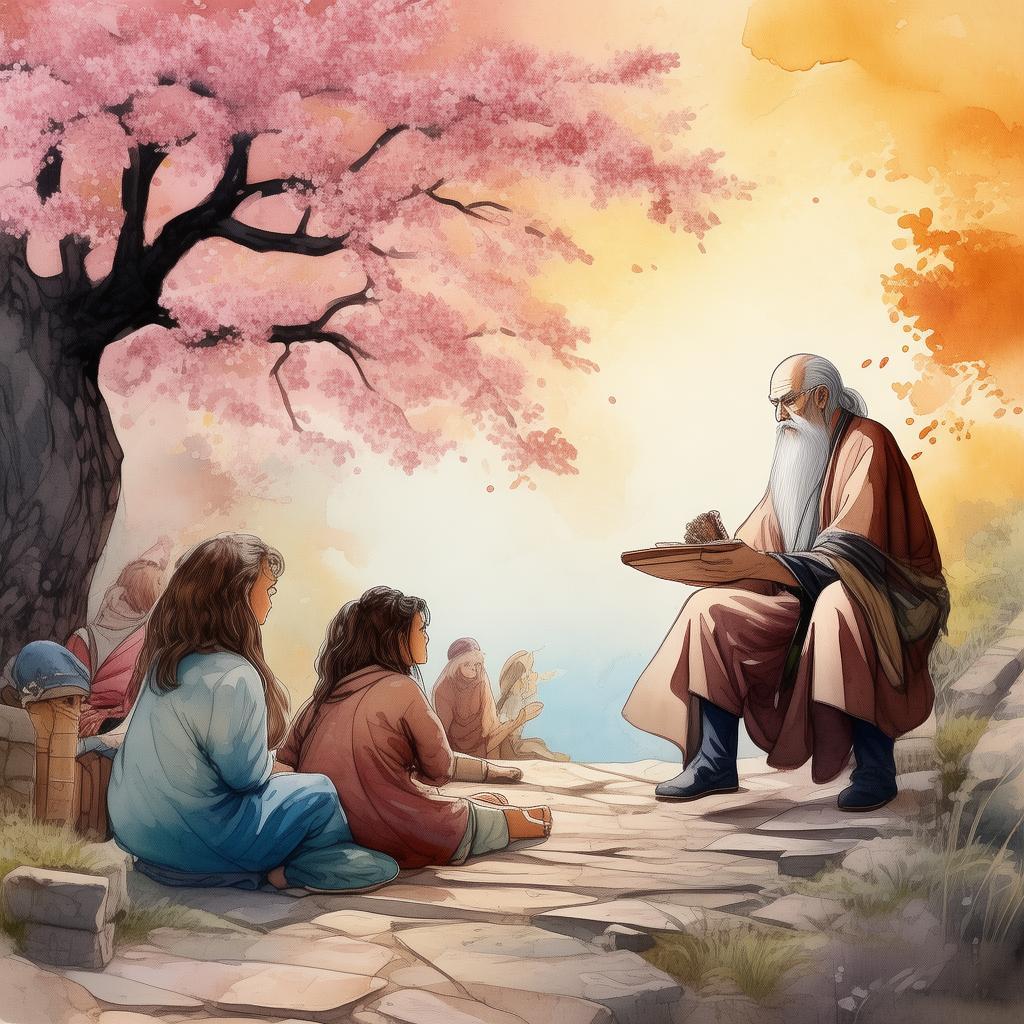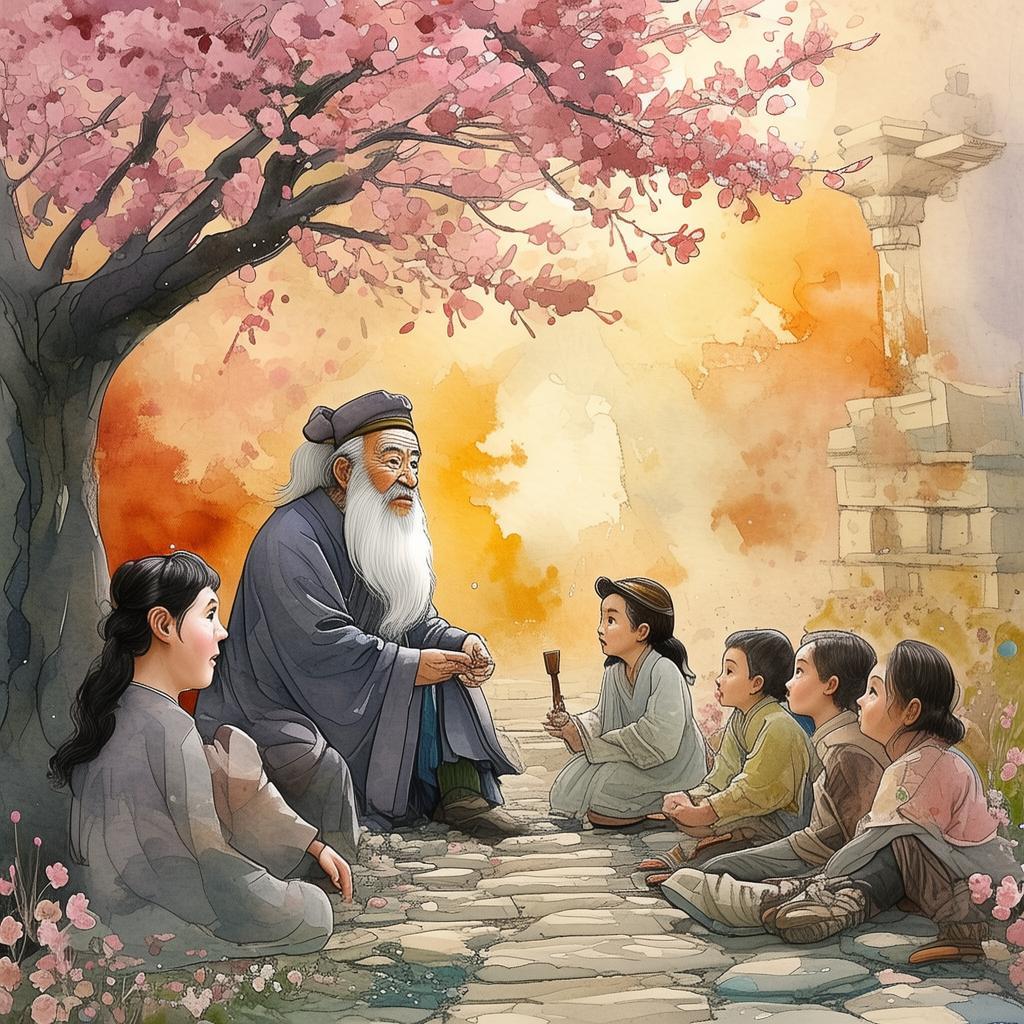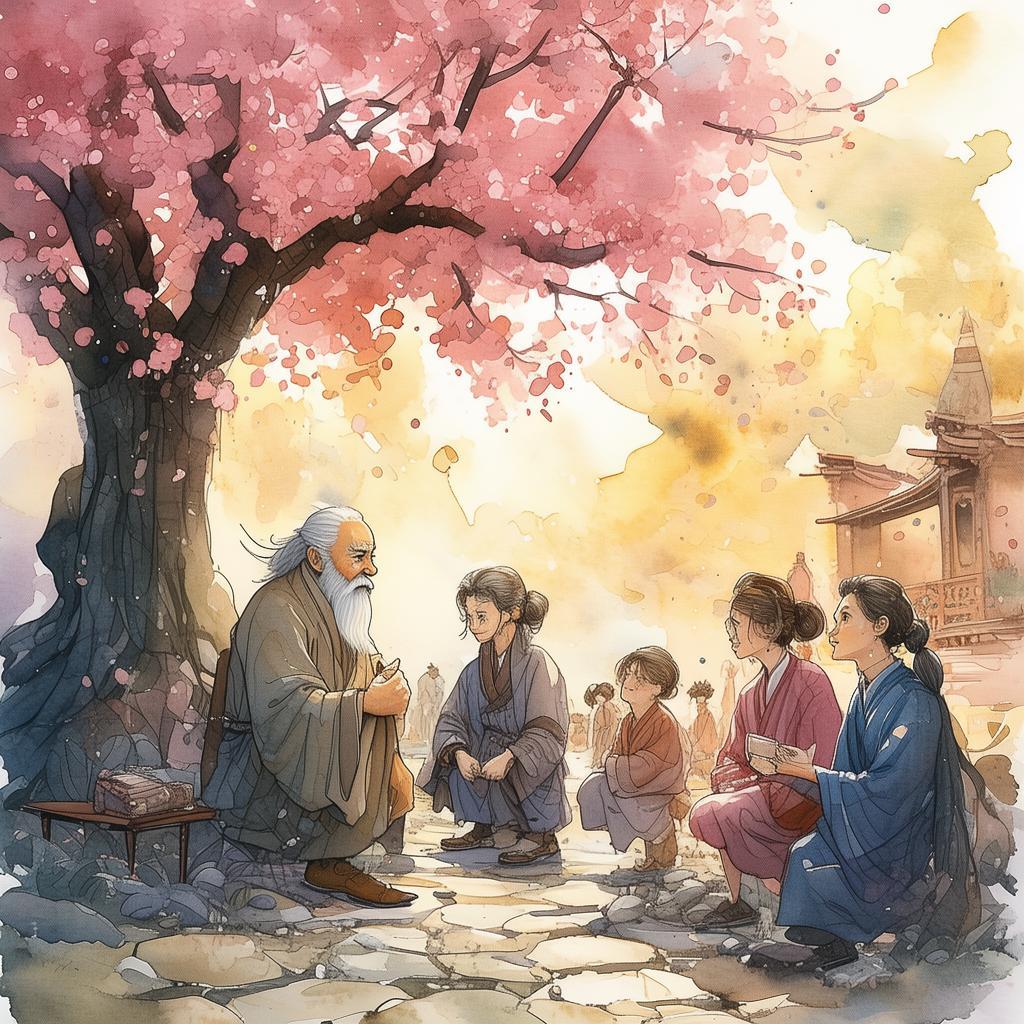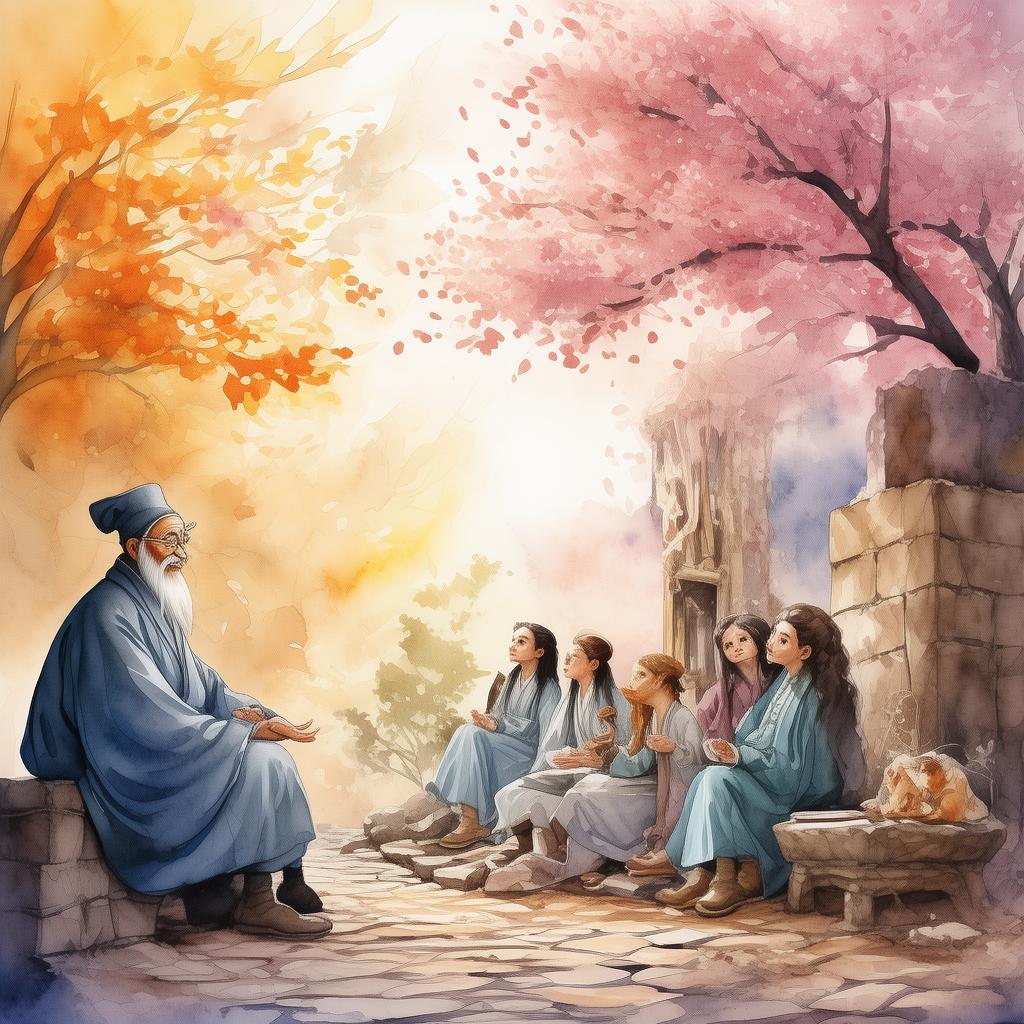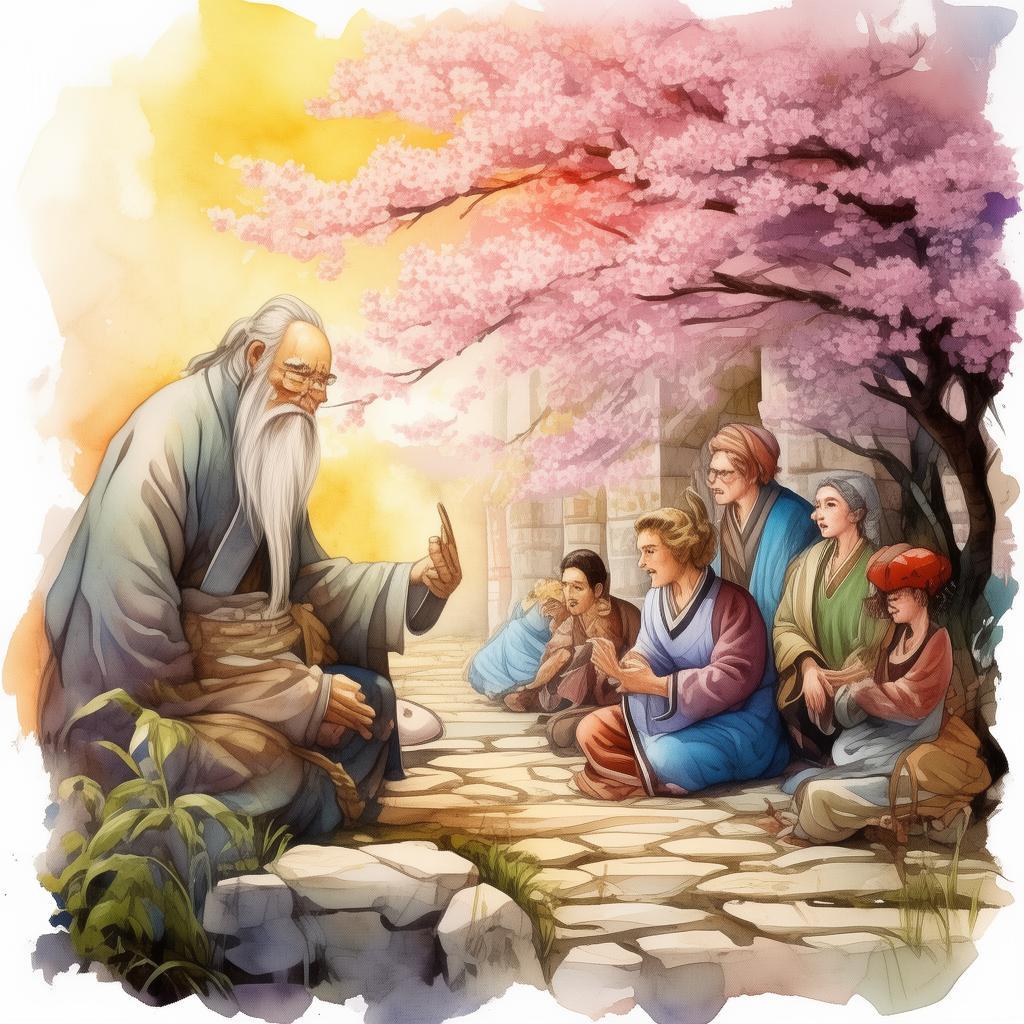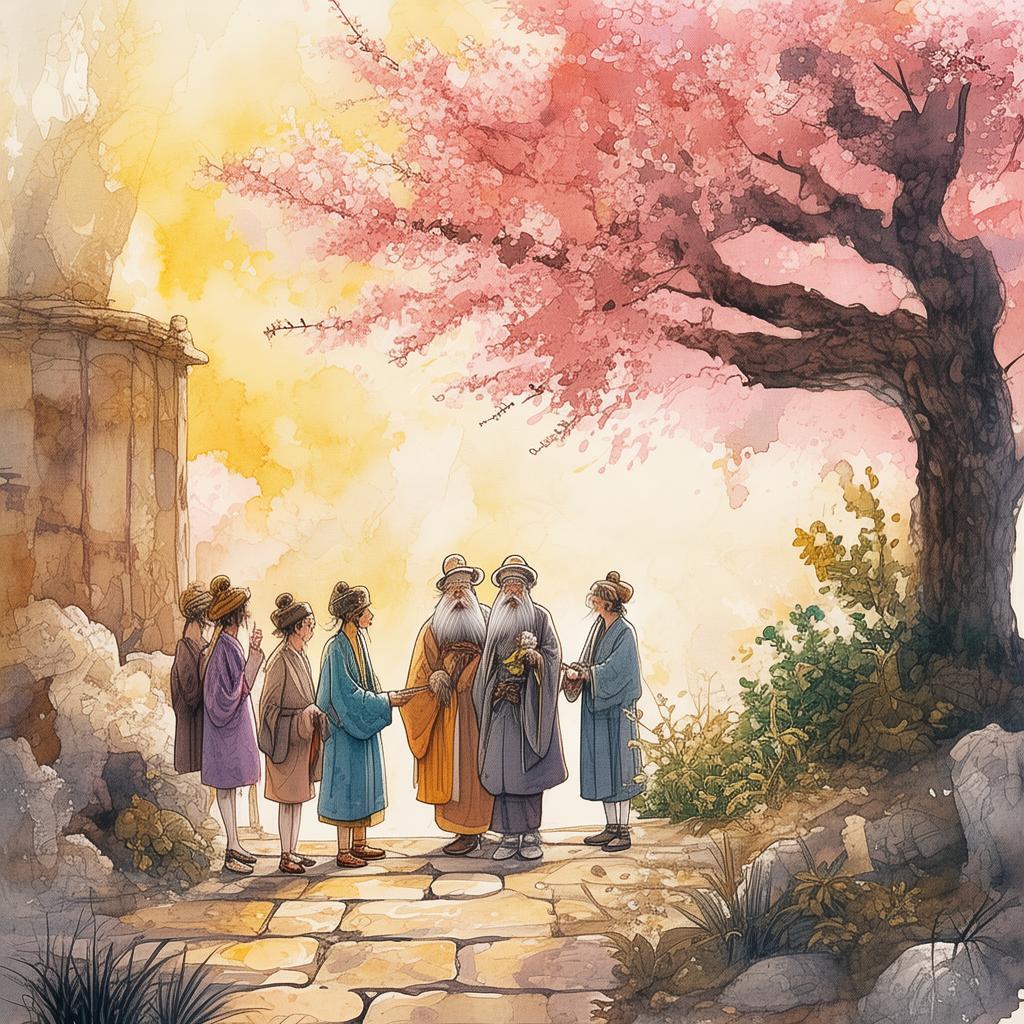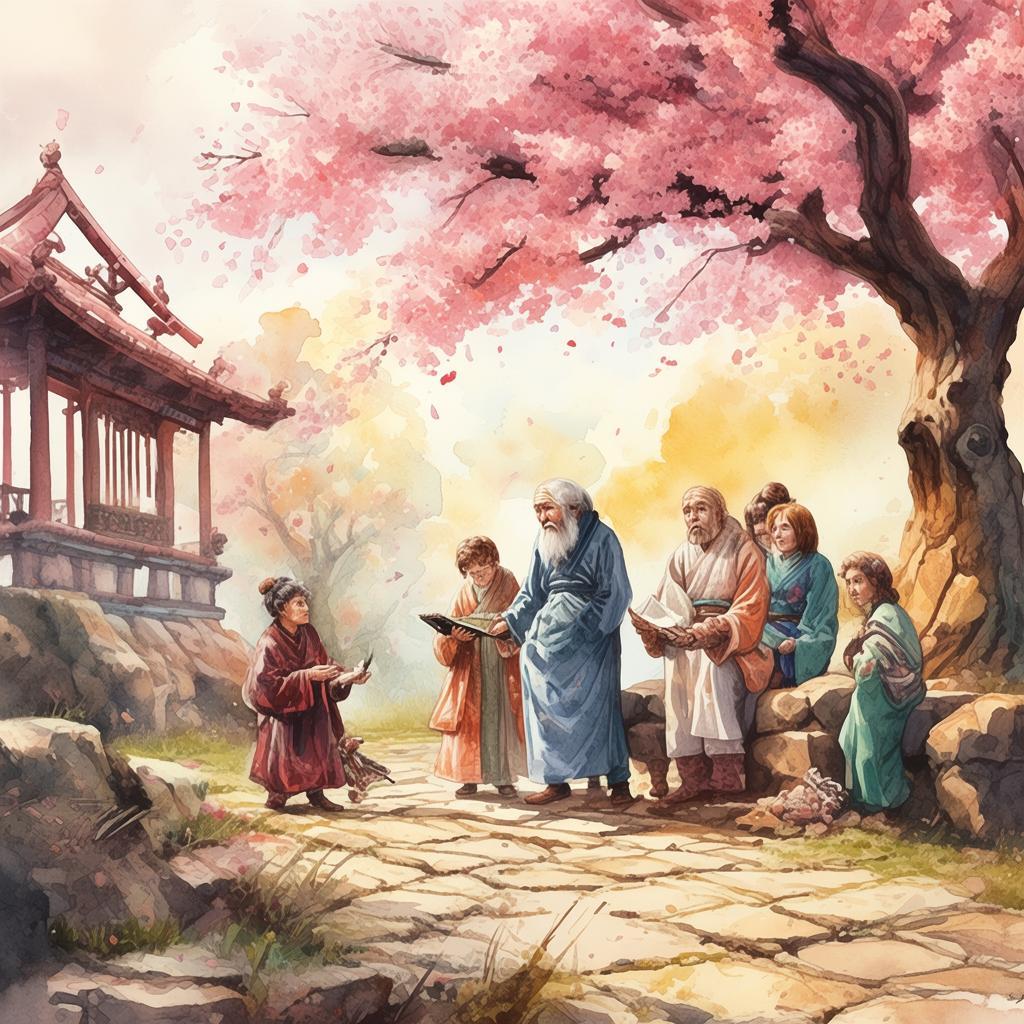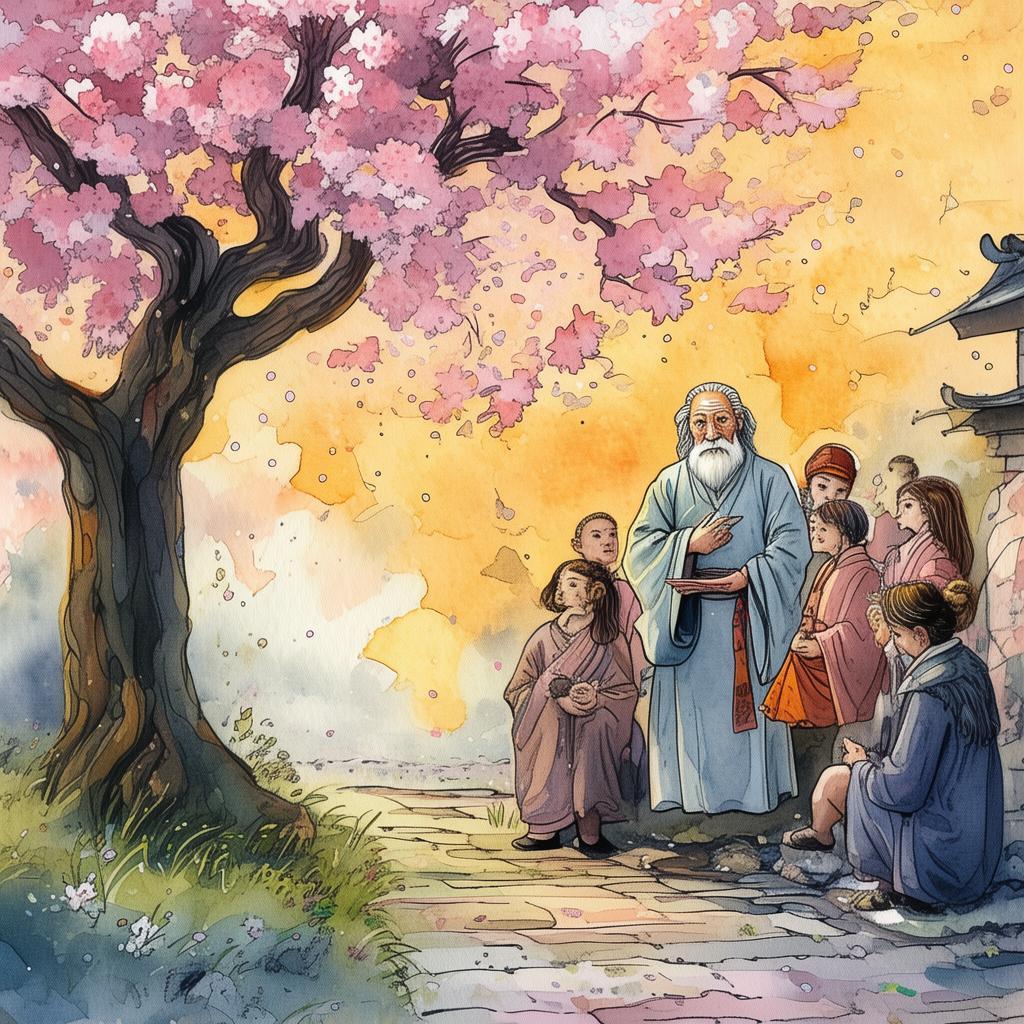Whispers of the Fateful Bull: The Unraveling of a Betrayal
In the heart of an ancient village, nestled between rolling hills and whispering forests, there stood a temple of ancient significance. The temple, known as the House of Echoes, was said to house the bull's song, a riddle so profound that it had never been solved. It was whispered that the one who could unravel the bull's song would bring prosperity and peace to the village, but the consequences of getting it wrong could be dire.
The young villager, Ming, had always been a dreamer, his eyes wide with wonder and his mind fertile with curiosity. He had heard tales of the bull's song since he was a child, tales that had become part of the very fabric of the village's lore. Ming had often pondered the mystery, dreaming of the day he would solve it and bring glory to his village.
One evening, as the sun dipped below the horizon, casting a golden glow over the village, Ming found himself in the temple's shadow. The air was thick with anticipation, as the elders had gathered to discuss the riddle's significance. Ming, feeling a surge of determination, approached the elders, his voice steady despite his racing heart.
"The bull's song is calling to me," Ming declared. "I will solve it and bring peace to our village."
The elders exchanged glances, their expressions a mix of hope and trepidation. They had heard the legends of the bull's song, but they had also heard of the unintended consequences that followed those who dared to solve it. Yet, in Ming's eyes, they saw a spark of something pure and genuine.
"Very well," the village elder said, his voice a deep rumble. "We shall test you, Ming. Only those worthy of the bull's song shall be allowed to attempt its solution."
The elders presented Ming with a scroll, upon which was written the riddle:
"The bull's song is heard,
In the silence of the night,
What does it say?
What does it mean?"
Ming took the scroll, his fingers tracing the ancient script. The riddle seemed simple, yet the weight of its significance pressed down upon him. He knew that the solution would not only bring peace but also reveal the hidden truths of his village's past.
Days turned into weeks as Ming pondered the riddle. He spoke with the village wise woman, seeking her insight. He walked the paths of the village, listening to the whispers of the wind and the murmurs of the forest. Yet, the answer remained elusive.
Then, in a moment of inspiration, Ming realized that the bull's song was not a literal one, but a metaphor for the village itself. The silence of the night was the harmony that bound them together. The answer, he believed, was hidden in the village's history.
Ming returned to the temple, his heart pounding with hope. He recited the solution, a series of words that seemed to resonate with the very stones of the temple.
As he spoke, the temple seemed to come alive. The walls echoed with a sound that was both ancient and familiar. The elders, who had witnessed the riddle's solution, gasped in awe. Ming had done it; he had unraveled the bull's song.
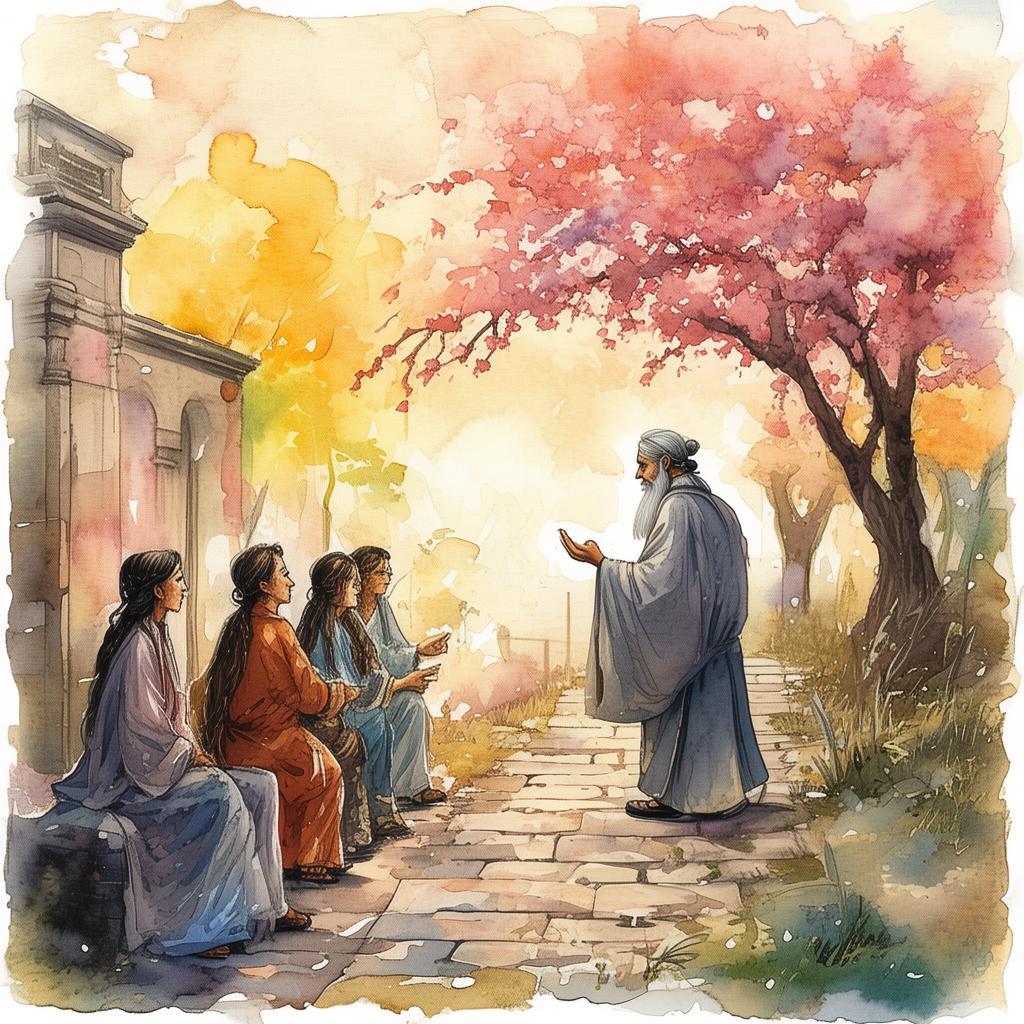
However, the true test of the solution was yet to come. The elders revealed that the riddle was a test of loyalty and integrity. Ming's answer had revealed a hidden betrayal within the village, a betrayal that had been brewing for generations.
The revelation sent shockwaves through the village. Trust was shattered, and suspicion ran wild. Ming found himself at the center of a maelstrom, as the villagers sought to understand the truth behind the betrayal.
In the midst of the chaos, Ming's determination never wavered. He knew that the solution to the bull's song was not just about bringing peace to the village; it was about healing the wounds of the past and restoring the harmony that had been so delicately woven into the fabric of their lives.
With the support of the elders and the courage of his convictions, Ming worked tirelessly to uncover the truth behind the betrayal. He discovered that the betrayer was not an outsider but someone who had been in the village all along, motivated by greed and fear.
The revelation of the betrayer's identity led to a heated debate among the villagers. Some demanded justice, while others sought reconciliation. Ming stood firm, advocating for a path that would allow the village to move forward, learning from the past and embracing a future of unity and understanding.
As the dust settled, the village began to heal. Ming's courage and wisdom had brought them through a dark time, and the village was stronger for it. The bull's song had not only revealed the truth but had also brought the villagers closer together, reminding them of the strength they possessed when they stood united.
The temple of Echoes stood as a testament to Ming's journey, its walls inscribed with the story of the bull's song and the unintended consequences that had led to the village's transformation. Ming had not only solved the riddle but had also become a symbol of hope and resilience for generations to come.
In the end, the bull's song had not just brought peace to the village; it had also become a reminder of the power of truth, the importance of unity, and the enduring strength of the human spirit.
✨ Original Statement ✨
All articles published on this website (including but not limited to text, images, videos, and other content) are original or authorized for reposting and are protected by relevant laws. Without the explicit written permission of this website, no individual or organization may copy, modify, repost, or use the content for commercial purposes.
If you need to quote or cooperate, please contact this site for authorization. We reserve the right to pursue legal responsibility for any unauthorized use.
Hereby declared.
